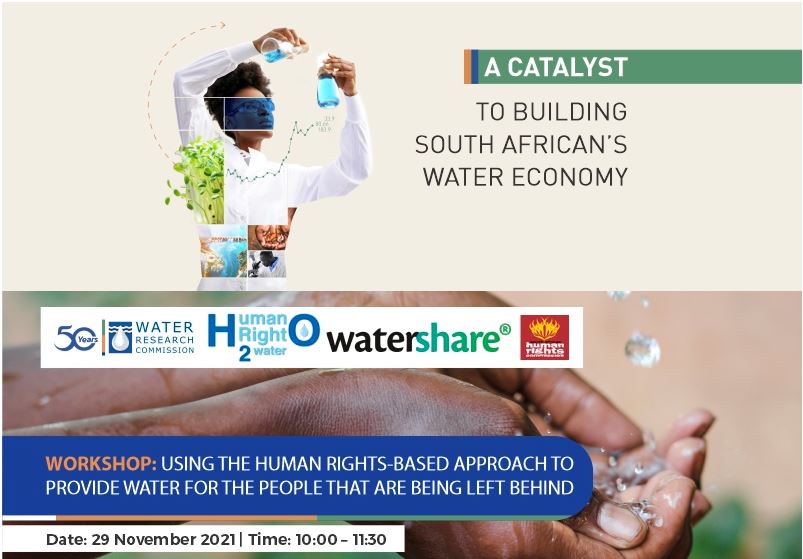
Water service delivery is challenging in developing countries such as South Africa, Kenya, Pakistan, and Costa Rica. Despite adopting the human right to water in the constitution, there are often water shortages, disruptions, and lack of access to quality water.
This webinar aims to share practices using the human rights-based approach to improve water service delivery for marginalised and vulnerable people. The session will highlight practical ideas that incorporate a Human rights approach, such that the audience can learn from these experiences.
According to World Bank data , the world population is 7.75 billion people and growing with a projection to reach 11 billion people by 2100. Currently, 2 billion people lack access to safely managed drinking water, including 800 million without basic drinking water services. According to United Nations Water, an estimated 3.6 billion people lack access to safely managed sanitation, while an estimated 2.3 billion people lack access to basic handwashing facilities. Access to quality safe water is imperative for the health and well-being of inhabitants of the different countries in the world, therefore, organisations, institutions and governments responsible for water service delivery need to improve access to water, through the delivery of quality services, to better the lives of their respective citizens. The right to water enables other human rights. When the United Nations General Assembly formally accepted access to sufficient, safe water for personal and domestic purposes as a human right in 2010, it further recognised this right as underpinning the realisation of all other human rights. Water service delivery has been extremely challenging in developing countries such as South Africa, Ghana, Malawi, Bolivia (Obosi, 2019). Even in countries that have adopted and formalised the human right to water in policy and practice, communities often experience water shortages, water disruptions and lack to access to quality water.
We invite country coordinators from HR2W to share their stories with our co-convenors, the Water Research Commission in South Africa and Watershare. We invite you to join our event online, to listen to their stories about how the HRBA can encourage participation of communities and to find sustainable solutions, despite a severe lack of resources, and impoverished regions.

